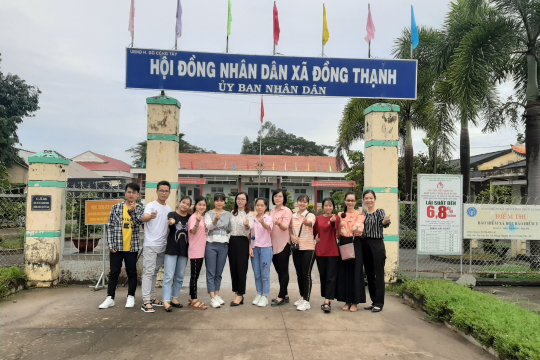Abstract
This study investigates gender-differentiated determinants of rice farm households’ adaptive measures to salinity intrusion in three rice-producing provinces in the Mekong Delta, Vietnam. The sample covered 430 farm households (274 male-headed and 156 female-headed). A multivariate probit model was used to identify factors affecting male and female farmers’ choices of adaptive measures. The six adaptive measures most commonly used by these households were: changing from rice to other crops, saving rainwater for daily use, digging ponds for water storage in the garden, reducing the number of rice crops per year, seeking other income sources, and purchasing agricultural inputs on credit. We found that demographic, socioeconomic, and farming characteristics, as well as institutional conditions and salinity-related variables, influenced female farmers’ adaptation choices. Female farmers have to overcome more barriers to undertaking adaptive measures than male farmers. They are also less likely to seek other income sources due to limited access to education and training. Attending agricultural extension services increases the probability that female farmers will change from rice to other crops or will seek other income sources. Therefore, extension services, educational opportunities, training on adaptation strategies, and income-generating opportunities should be made accessible for all farmers, especially women, to increase their resilience to climate change and salinity intrusion.
Keywords: adaptation, farmers, gender, Mekong Delta, salinity intrusion, Vietnam


